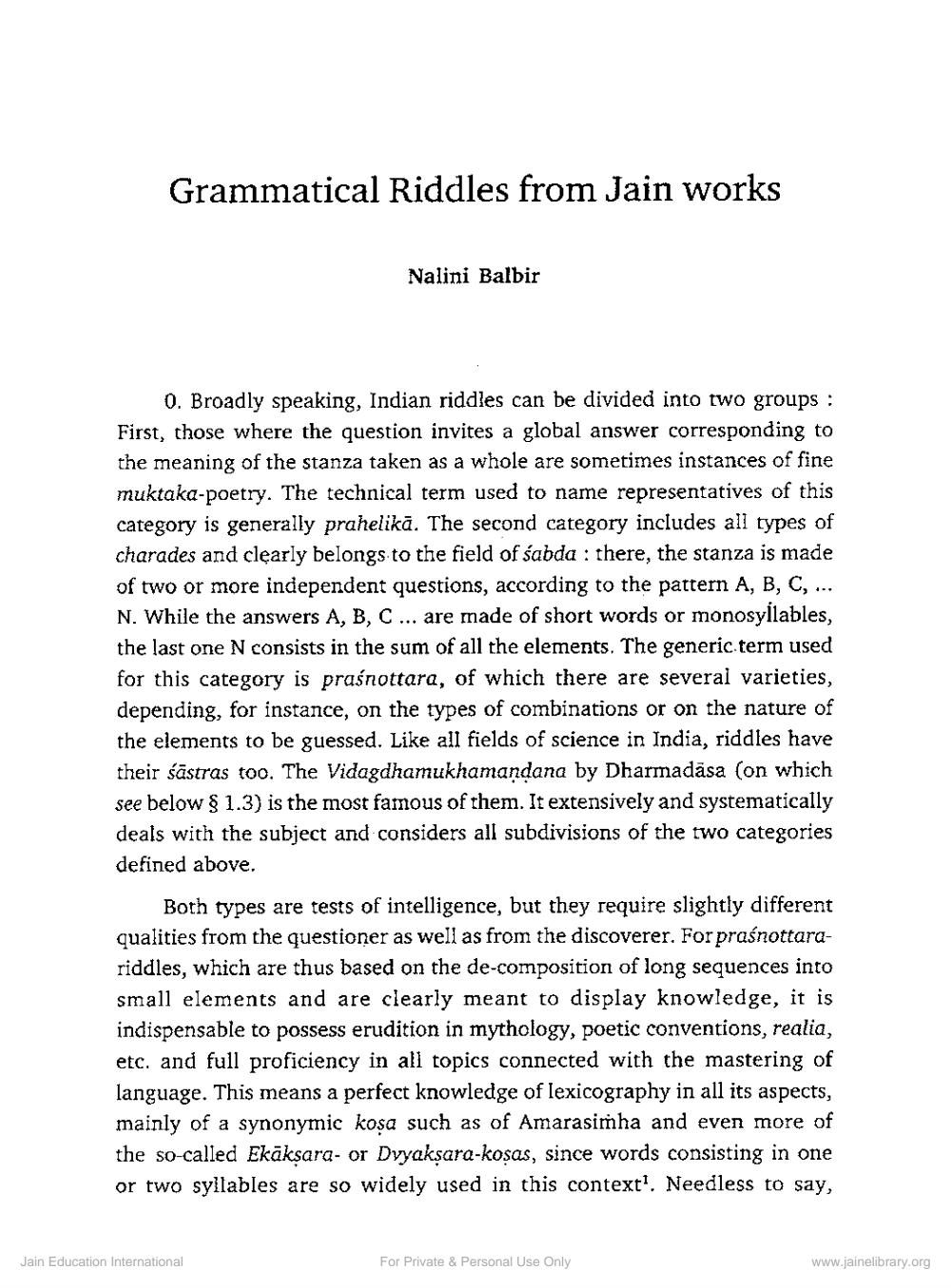Book Title: Grammatical Riddles from Jain Works Author(s): Nalini Balbir Publisher: Z_Nirgranth_Aetihasik_Lekh_Samucchay_Part_1_002105.pdf and Nirgranth_Aetihasik_Lekh_Samucchay_Part_2 View full book textPage 1
________________ Grammatical Riddles from Jain works Nalini Balbir 0. Broadly speaking, Indian riddles can be divided into two groups : First, those where the question invites a global answer corresponding to the meaning of the stanza taken as a whole are sometimes instances of fine muktaka-poetry. The technical term used to name representatives of this category is generally prahelikā. The second category includes all types of charades and clearly belongs to the field of śabda : there, the stanza is made of two or more independent questions, according to the pattern A, B, C, ... N. While the answers A, B, C ... are made of short words or monosyllables, the last one N consists in the sum of all the elements. The generic term used for this category is praśnottara, of which there are several varieties, depending, for instance, on the types of combinations or on the nature of the elements to be guessed. Like all fields of science in India, riddles have their śāstras too. The Vidagdhamukhamandana by Dharmadāsa (on which see below § 1.3) is the most famous of them. It extensively and systematically deals with the subject and considers all subdivisions of the two categories defined above. Both types are tests of intelligence, but they require slightly different qualities from the questioner as well as from the discoverer. For praśnottarariddles, which are thus based on the de-composition of long sequences into small elements and are clearly meant to display knowledge, it is indispensable to possess erudition in mythology, poetic conventions, realia, etc. and full proficiency in all topics connected with the mastering of language. This means a perfect knowledge of lexicography in all its aspects, mainly of a synonymic kosa such as of Amarasimha and even more of the so-called Ekāksara- or Dvyakşara-kosas, since words consisting in one or two syllables are so widely used in this context. Needless to say, Jain Education International For Private & Personal Use Only www.jainelibrary.orgPage Navigation
1 2 3 4 5 6 7 8 9 10 11 12 ... 41
